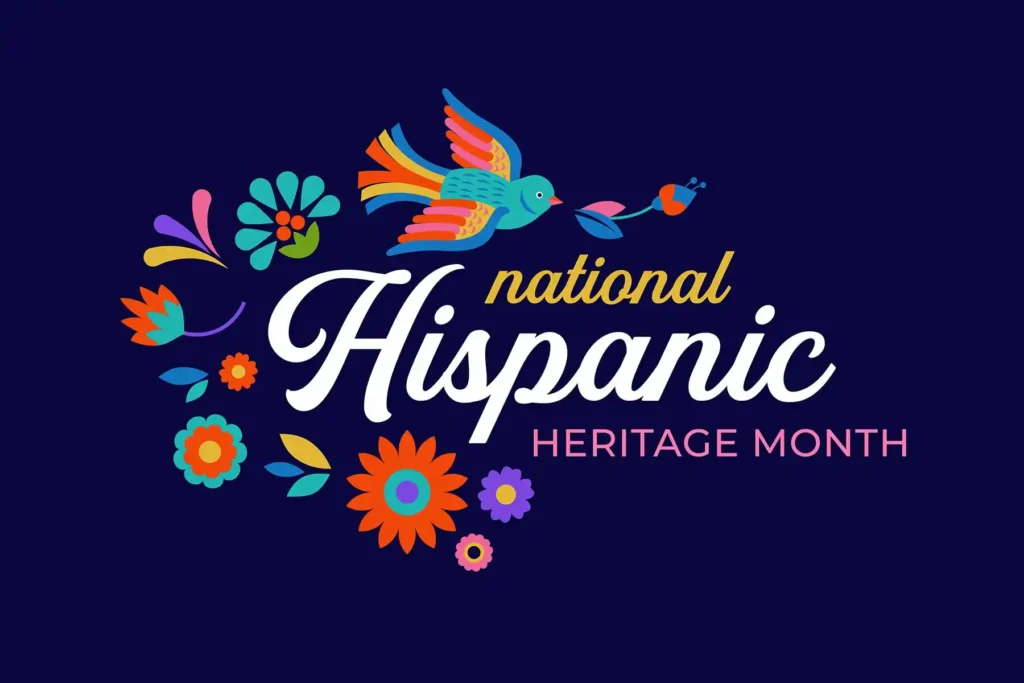Hispanic Heritage Month, celebrated from September 15 to October 15, is a crucial time to recognize and celebrate the contributions of the Latino community in the United States. But have you ever wondered how this celebration came about and why it is so significant?
Origin and Significance of Hispanic Heritage Month
Hispanic Heritage Month began as a weeklong celebration in 1968, during the administration of President Lyndon B. Johnson. It was a recognition of the influence and contributions of Hispanics in American culture, the economy, and society.
Then, in 1988, under the presidency of Ronald Reagan, the celebration was extended to a full month, reflecting the growing importance of the Hispanic community in the country.
Today, Hispanics make up the second-largest ethnic group in the United States, with a population of over 67 million people.
Why was this period chosen?
The period from September 15 to October 15 was not chosen at random. September 15 marks the independence of several Latin American countries, such as Costa Rica, El Salvador, Guatemala, Honduras, and Nicaragua.
Additionally, Mexico celebrates its independence on September 16, and Chile on the 18th. This coincidence of national days from various Latin American countries makes this month especially significant for Hispanics in the United States.
How does the Latino community contribute to the U.S. economy?
The Latino community in the United States plays a crucial role in the country’s economy. According to the latest report from the Latino Donor Collaborative (LDC), if Latinos in the U.S. were an independent country, their economy would be the fifth largest in the world, surpassing nations like the United Kingdom and France.
In 2021, the total economic output of Latinos in the U.S. reached $3.2 trillion, which represents a significant contribution to the country’s Gross Domestic Product (GDP).
The report also highlights that Latino GDP growth has outpaced the overall U.S. GDP growth, especially during the COVID-19 pandemic. Latinos not only kept the economy running during this critical period but were also essential to the economic recovery, with consistently higher labor force participation rates than other demographic groups.
The Importance of the Latino Vote for the Future of the United States
Latinos are the fastest-growing minority group in the country. With over 32 million Latinos eligible to vote in 2024, they represent a significant portion of the electorate.
This group has the potential to influence the outcome of local, state, and national elections, especially in states where the vote is evenly split between political parties.
In many so-called “swing states,” such as Florida, Arizona, and Nevada, Latino voters can be decisive. Their participation can determine the winner of presidential elections and other key races, underscoring their strategic importance in the political landscape.
However, historically, the Latino community has been underrepresented at the polls. This is due to various factors, including a lack of access to election information in Spanish, distrust in the political system, and structural barriers such as voter suppression.
Remember, you can only vote or register to vote if you are a naturalized U.S. citizen. Permanent residents (Green Card holders), temporary workers, and undocumented individuals cannot vote.
Voting without the right to do so may seem like a minor infraction, but it is a federal crime with serious consequences. Those caught voting illegally may face fines, imprisonment, and for immigrants, deportation. Additionally, this type of offense can have a permanent impact on a person’s ability to naturalize as a U.S. citizen.
The Power of Our Voice
Hispanic Heritage Month is an opportunity to reflect on the path traveled by the Latino community in the United States and to recognize our collective power.
As we celebrate our achievements, we must also remember the importance of actively participating in the democratic process. Voting is not only a right but also a duty that ensures our needs and concerns are represented at all levels of government.
At Saavedra & Perez Law, we are here to support our community in all stages of their immigration and legal journey. If you have questions about your rights or need legal advice, do not hesitate to contact us. We are with you every step of the way!

